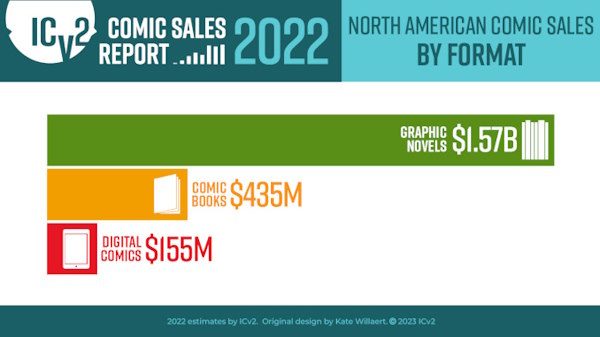NOTE: This is the last “newsletter” for 2023, but I’m also planning on writing a few recaps of my favorite games, movies/TV, and books before the end of the month, so apologies in advance to those of you who signed up for the newsletter before I switched it to a stealth blog feed. 2024 will go back to the usual bi-weekly schedule for the newsletter, with the occasional standalone post here and there in between. Thanks for sticking around, and happy holidays!
_ONE
The surprising connection between after-hours work and decreased productivity | Slack
This goes to show that productivity isn’t linear. Productivity happens in bursts, on and off throughout a day, not necessarily in prescribed windows of time, and definitely not for eight consecutive hours. The ‘afternoon slump’ shouldn’t be seen as a bad thing; for many workers this could be an ideal time to take that break that will boost their overall productivity for the day.
Let’s ignore the irony of Slack publishing research that concludes always being ON is a bad thing, and definitely ignore the last section about AI, which ends abruptly, like a new Slack feature didn’t hit its launch deadline but they had to hit publish before the holidays. Focus instead on the handful of surprising-to-no-one nuggets about productivity that you can send to your boss who uses Slack 24/7 and schedules too many meetings and will likely take it more seriously because it’s from Slack. There’s even a good quote from Ariana Huffington, who is probably still revered in some Slack-loving executive circles!
Seriously, though, working from home has its pros and cons, and one of the main pros has definitely been the flexibility to optimize my schedule around my most productive periods — mid-morning, preferably after a good run; and early evening, between 4-7pm. The biggest con is there are definitely more formal meetings than I used to have in the office since we don’t have serendipitous hallway conversations, smoke breaks, or happy hour drinks. Whenever possible, I prefer squeezing them in between Noon – 3pm so they don’t eat up my most productive times.
Of course, with colleagues in other time zones, it’s important to remember they might be in a less productive period of their day, so it’s good to be flexible and willing to eat lunch on camera, or more importantly, preemptively cancel any meeting that doesn’t have a clear agenda with measurable outcomes, regardless of what time it’s scheduled.
__TWO
Comics won’t just break your heart | Tynan Stewart
Immensely profitable media companies use characters and stories created by comics workers to produce films and TV shows that rake in billions, but most cartoonists lack even the psychological compensation of being considered “real” artists, suffering or otherwise. (The money itself rarely trickles down to individual creators.) Even companies that literally wouldn’t exist without cartoonists can’t help insulting them: Last year, the popular comics site Webtoon ran an advertising campaign that declared, “Comics are literature’s fun side-hustle,” infuriating artists whose work sustains the platform.
Comics has always been a predatory industry and there are very few truly ethical publishers. That’s not news, yet every generation of aspiring comics creators ends up learning the hard way. The #ComicsBrokeMe hashtag was another example of what happens in small, incestuous industries that rely on whisper networks to stay safe and employable. Once you’re in, you don’t want to rock the boat and risk your own place in it, so newcomers are left to fend for themselves.
One of the biggest reasons so many people were surprised by the stories shared via the hashtag is the vast majority of comics media coverage is based on access, relationships and pageviews, so there’s very little actual journalism happening to expose the bad business practices that are basically industry standards across the board — from Big 5 imprints to Marvel and DC to your favorite manga and indie publishers. Access and relationships also allow abusers of all kinds to remain gainfully employed “open secrets,” ensuring their access to a steady flow of fresh prey and a lack of consequences.
Unfortunately, there’s a strong and arguably valid belief that few comics fans actually care about the business side of comics, which is partly why industry media feels justified in not prioritizing hard journalism. Industry exposés might drive pageviews, but they also cut off access, destroy relationships, and repel advertising.
___THREE
Comixology was never going to save comics, but it tried | Susana Polo
There is a demonstrable need for a flexible, industry-wide solution here — but the monthly U.S. comics industry is small. There just isn’t a lot of market pressure for a bespoke, comics-specific digital platform, much less multiple healthily competing ones.
Amazon acquired Comixology 10 years ago (coincidentally, shortly after their own failed foray into comics) and it was no secret what happened to most Amazon acquisitions, even back then. For every Audible, Goodreads, and Twitch still operating as a “separate” business, there was (the original) Alexa, BookSurge, Shelfari, and dozens others — all shuttered outright or folded into the mothership. That no worthy digital comics competitor emerged since 2014 says more about the declining audience for periodicals (physical and digital) than Amazon’s dominance, incompetence, or malfeasance.
It’s highly unlikely any new entrants will find success on the retail side, either. Substack quickly moved on to the more profitable Nazi Bar model of casual journalism after being lauded as an industry disruptor for other reasons; $9m is chump change for building what’s really needed to compete as a dedicated, multi-publisher digital comics platform; and the print periodical game that underpins what’s considered “traditional” digital comics is steadily fading away.
Periodicals primarily focused on superheroes are a niche category and haven’t been the best-selling category in comics in several years, despite the success of the MCU. The comics medium is huge, though. So is manga. Meanwhile, webcomics have been quietly nurturing and fostering a whole new generation of comic creators and readers for years, and while there’s no hard data on their sales impact yet, the global webcomics market is projected to hit $10 billion by 2026.
Comics don’t need saving, but publishers still clinging to old models and aging fans are definitely on life support. Comixology was temporary pain relief, never the cure.
____FOUR
Webtoons and Webcomics Keep Scrolling into Print | Shaenon K. Garrity
Many publishers note that adapting webcomics to print is nothing new. Some of the most successful graphic novels of the past 20 years, including Gene Luen Yang’s American Born Chinese and Raina Telgemeier’s Smile, began as online comics in the 2000s.
While I’ve never been an avid reader of webcomics, I’ve long appreciated their place in the market and have been particularly fascinated by Webtoon’s growth and evolution over the past few years. Where comics and manga have historically been relegated to the niche fringes of the publishing industry, their digital counterparts are usually an afterthought at best, partly because of their non-traditional discovery and revenue models, and also the previously mentioned lack of a legitimate competitor to Comixology.
While some individual comics and manga publishers have prioritized building their own digital storefronts to varying degrees of incremental success, two new generations of readers have grown up reading a much broader range of comics and manga than my generation did, and they’re helping expand the medium well beyond the corporate constraints of Serious Spandex and “comics are for kids” stereotypes.
It will be interesting to see who the audience for this new surge of webcomics in print ends up being: existing webcomics fans looking for a tangible collectible to own; a new audience of print readers looking for new voices; or, ideally, a combination of both. Garrity presents a great overview of the segment (sadly missing one of my faves, Saturday AM), including the unique challenges involved in making a digitally native artform work on the traditional printed page.
_____FIVE
Independent Comics for Every Reader | LibraryPass
At LibraryCon Live 2023, attendees discovered a range of great comics and manga for readers of all ages from independent publishers ABLAZE, Fanbase Press, and Red Comet Press.
It seems like three lifetimes ago when I had a side gig writing about comics (RIP, Buzzscope/PopCultureShock), but one of my favorite things was browsing the indie racks at Midtown Comics to find underrated gems that flew under the mainstream radar, and putting a spotlight on them, either in individual reviews or one of the various columns I wrote back then.
Some of my favorite writing ever is from that period, including my all-time favorite interview (Charlie Huston), and discovering one of my still-favorite indie comics (Skyscrapers of the Midwest).
Very much related, one of the things I like most about the day job is Comics Plus enables libraries to expand and diversify their digital collections way beyond Dog Man and the top 5 Shonen series du jour. While I don’t get to read nearly as many comics as I thought I’d be able to — a job you like is still a job, and reading comics still isn’t what I get paid for! — I’m more aware of the range of comics being published than ever before, and one thing hasn’t changed: some of the best ones are from smaller publishers who fly under the radar; you just have to be willing to seek them out.
Moderating our annual LibraryCon webinar was a delight because I got to put the spotlight on three great indie publishers — ABLAZE, Fanbase Press, and Red Comet Press — and discovered a few new-to-me titles I’m looking forward to reading!
Anyone who thinks comics are dying is doing it wrong.
If you’re reading this somewhere other than your inbox and would like to get it via email, sign up here, or you can add the RSS feed to your favorite reader. You do you!
Do you like email?
Sign up here to get my bi-weekly "newsletter" and/or receive every new blog post delivered right to your inbox. (Burner emails are fine. I get it!)



